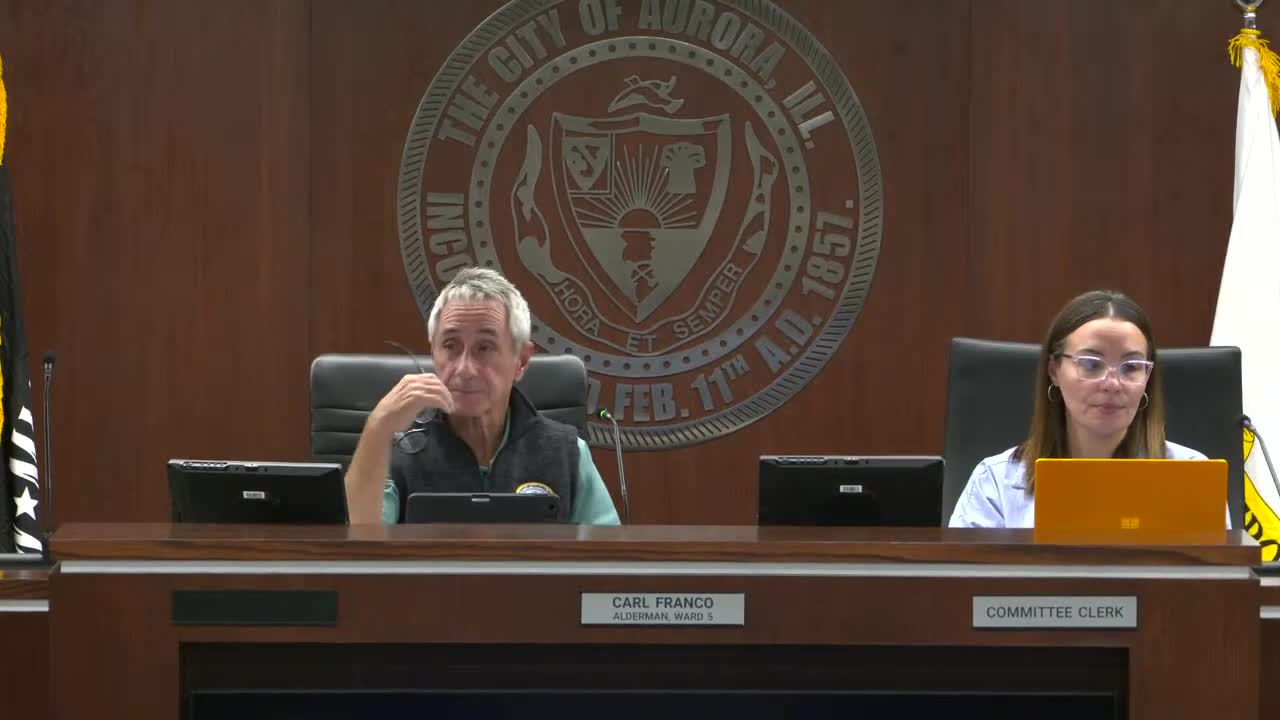Development services report strong permit revenue; city advances business-assistance and facade funds
Get AI-powered insights, summaries, and transcripts
Subscribe
Summary
Development Services Director Josh Schreem told the finance committee that year-to-date department revenue is about $9 million, roughly $3 million above expectations. Staff outlined staffing requests, a new business-assistance fund, a $1 million facade program funded from a transformation fund and expanded property-standards enforcement practices.
Josh Schreem, director of Development Services, briefed the Aurora Special Finance Committee on Oct. 25 on department revenue, staffing needs and proposed decision packages for 2025.
"So far, our year to date revenue is about $9,000,000, which is $3,000,000 over where we were expected to be, for this year," Schreem said, and he told the committee permit activity and development projects continue to trend upward.
Highlights from the Development Services presentation and related Mayors nd Economic Development (MoEd) items included:
- Permit and development trends: Schreem said the city—xpects continued growth in single-family and multifamily construction. He reported "over 300 new single family homes since '24" and noted large projects including Fox Valley phases, 110 Cross and DAC.
- Building and inspections staffing: Schreem and other staff said retirements and turnover have created short-term gaps. The department is recruiting multiple inspectors (the presentation forecast bringing seven new inspectors onboard in the next four months) and said total building-and-permits inspection staff would reach about 15 once hiring is complete.
- Property standards and after-hours enforcement: Ruthie Harris, director for property standards, explained the department oes not currently staff full weekend or late-evening inspection shifts. She said management reviews after-hour complaints and that the department has begun accepting resident-supplied photos as the basis for an initial review: "If that owner, that citizen provides us with a picture of the violation, we will take that information, review it, and determine whether or not we're gonna go ahead and proceed with a violation," Harris said.
- Business-assistance and facade funds: MoEd proposed a $500,000 business-assistance fund (reduced from an earlier $1 million proposal during budget balancing) to support permanent, building-level improvements that make commercial properties more marketable. David Debo (MoEd) and other staff described the grants/forgivable-loan structure as project-specific and emphasized staff would bring individual deals to council when amounts or terms required further review. Separately, the presentation proposed a $1 million facade program funded from Fund 130 (the transformation/Cyrus 1 allocation) to support exterior, street-visible improvements citywide.
- Program structure and oversight: City staff described the Fund 130 pool (the presentation used the term "transformation fund") as a revolving, replenishing fund where funds used for economic development projects could flow back to Fund 130 as projects generated taxes and other revenues. Alex Alexander, the city—hief Management Officer, said finance and administration would apply oversight and project-level tracking to ensure reimbursements and return flows to the fund.
- Digital and customer-service initiatives: Development Services and IT are implementing additional interactive service channels (IVR and Selectron text-based interactions) to allow contractors and residents to schedule inspections, pay fees by phone and interact using mobile text services. Schreem said about 59—0% of rental-license transactions are processed online.
Committee members raised several operational questions: Alderman Donnell thanked staff for demolition and cleanup of the former YMCA site. Alderman Bogue and others pressed on enforcement scheduling and how inspectors handle weekend and evening complaints; Alexander and staff explained union rules limit mandatory overtime and staffing changes require negotiation with unions, but management may authorize overtime or adapt scheduling where feasible.
Why this matters: Development Services revenue and permit activity affect city revenue projections, construction employment, housing delivery and downtown redevelopment capacity. Proposed assistance and facade funding are meant to unlock private investment in older buildings and support downtown and corridor revitalization.
Next steps and follow-up: staff will continue recruitments for inspector positions and return to council with specific project proposals when funding or terms exceed administrative thresholds; city staff also committed to providing details on loan/forgivable-loan terms and how individual award decisions will be evaluated.
Votes at a glance: the Oct. 25 meeting adjourned on a 4-0 procedural vote (see action record in metadata).
